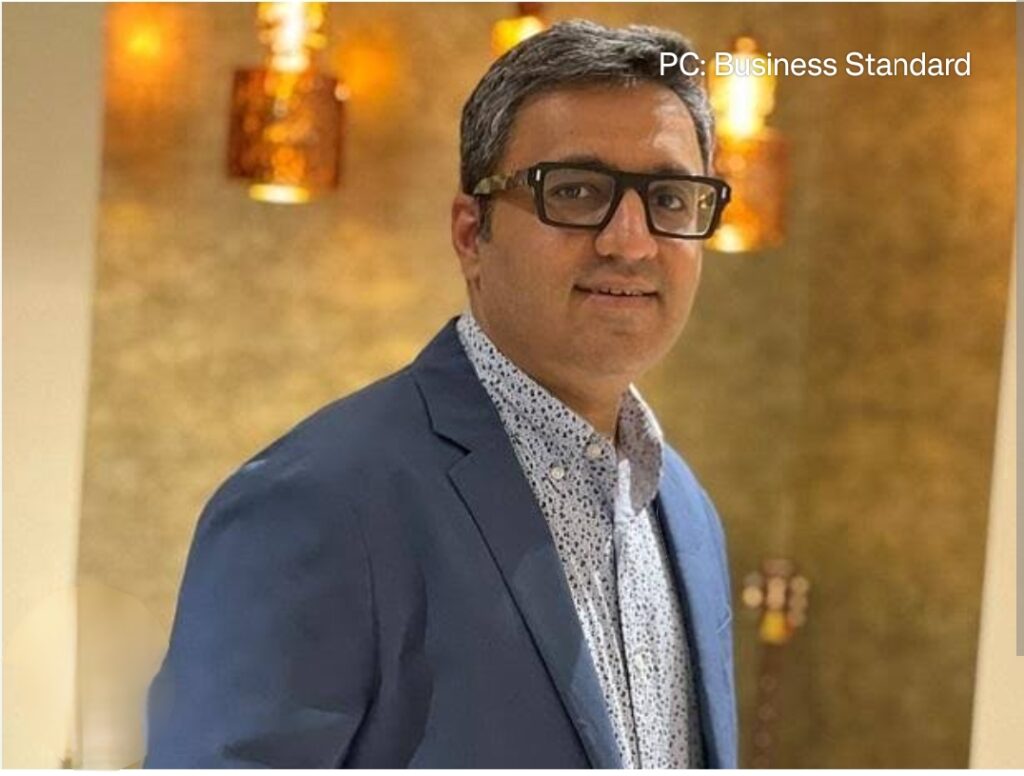Ashneer Grover, a former judge of Shark Tank India, made a landmark move to trademark his name, which brought about heated discussions among business circles and on social media. Not only does such a step bolster Grover’s own brand, but it proves how Indian celebrities are becoming increasingly conscious of self-branding amid cut-throat competition in a digital landscape.
The Trademark Process
Obtaining a trademark for a name is a significant hurdle, particularly in industries beyond the creative or entertainment sectors. Grover’s name is classified under the Trademarks Act of 1999 as trademarked within class 41 for services such as education, training, and entertainment, thus affirming the multifarious contributions of Grover, who is, in himself, a public speaker, media personality and businessman.
Growing Trend Of Celebrity Branding
Grover’s action reflects a larger pattern in which Indian celebrities and public figures associate their identities with intellectual property. Celebrities like Shah Rukh Khan, Alia Bhatt, Kajol, Amitabh Bachchan, Ajay Devgn, Sunny Leone, Sanjeev Kapoor are not just stars- they have taken their personal brands to another level by trademarking their names. In addition to providing alternatives for licensing aspects like branded items and endorsements, these trademarks act as covenants for protection. Meanwhile, for Grover, his business was moving along at a great pace, and he got the opportunity to secure numerous partnerships and endorsements in fintech and education. This action also demonstrates how, as India becomes more integrated into the global economy, Indian entrepreneurs are gradually integrating global practices into their own brand management. Being strongly exhibited to depict proactive behaviour in times of personal branding creating avenues for profit and influence is indeed exemplary for the social eye. It additionally emphasizes how modern corporate executives are increasingly using intellectual property rights as tools.
Legal Implications & Ethical Questions
Referencing the Trademarks Act of 1999, in India, personal names are not very effectively covered, thereby making such cases open to interpretation. For a name to be registered as a trademark, it is necessary to prove that the name has become distinctive through wider public awareness or previous usage. It is easier for people like Grover to prove this, given that his name is associated with a generally well-known career. This may seem rather intimidating for less noted individuals, though, given the restrictions placed on them.
There are also ethical concerns surrounding trademarking names. Assume, for the sake of this argument, that a particular person asserts exclusive rights to a name which another might want to use. While the law attempts to safeguard against monopolization of common personal names, scenarios that give rise to conflicts could have arise, especially in those sectors where brands overlap. A serious question is whether an “Ashneer” would ever dare to commence business without fearing the rigor of law. This suggests the carry-along need for direction on striking a balance between collective good and individual rights.
Grover’s attitude is a perfect example of how personal branding is developing in this modern digital age. A digital persona visualizes the public figures because they have gained momentum on a social network, because their names and images become very considerable tacit assets. Who knows, if other technologies featuring NFTs and virtual reality capabilities were to develop, trademarking a name could pretty much control use of that name. With the advances in the world of digital, many more celebrities and business persons might feel increasingly pushed to seek trademark registration to restrict permitted use of a brand in its domain.
Grover got the trademark for his name in an effort to expand his revenue avenues. Since companies may engage in licensing agreements, his name would find scope for use in financial education programs, advertising campaigns, or leadership training programs. Through trademarking, he could gain some specialized protection against or discouragement of misuses like unauthorized products or false endorsements.
Conclusion
We’ve now entered an era where even children’s names, such as Kylie Jenner’s “Stormi Webster,” are getting trademarked before they’ve even learned to walk, and now, countries like Sweden are filing for trademark registration of their own names. This trend shows how personal branding has evolved, with names becoming valuable assets from or even before birth. For anyone looking to tap into this expanding market, securing a name legally is a crucial step toward ensuring its uniqueness, authenticity, and dependability in a rapidly growing industry.
Authors: Mahima Gupta, Smita Pandey & Nitya Sanghavi

